The Intel-developed technology is called High-bandwidth Digital Content Protection (HDCP) and aims to prevent copying of digital audio and video content as it travels across a variety of display connectors, even if such copying is not in violation of fair use laws.
Among the connectors supported by the technology are the Mini DisplayPort found on Apple's latest MacBook, MacBook Pro, and MacBook Air, in addition to others such as Digital Visual Interface (DVI), High-Definition Multimedia Interface (HDMI), Gigabit Video Interface (GVIF), and Unified Display Interface (UDI).
ArsTechnica reports that Apple has apparently acquired a license for the technology and is now using it across its DisplayPort-enabled MacBook lines to to prevent transmission of purchased iTunes content to devices that don't include support for HDCP.
"When my friend John, a high school teacher, attempted to play Hellboy 2 on his classroom's projector with a new aluminum MacBook over lunch, he was denied by the error you see [below]," writes Ars' David Chartier. "John's using a Mini DisplayPort-to-VGA adapter, plugged into a Sanyo projector that is part of his room's Promethean system."
The report adds that only a portion of Tunes Store video content is presently HDCP-aware, and in each case the protected files are wrapped in either version 2 or 3 of Apple's FairPlay digital rights management software.
Apple has said that it plans to adopt Mini DisplayPort across its entire product line, meaning that all future Macs from the Cupertino-based company are likely to include the same restrictions experienced by users of its latest notebooks.
iTunes denies playback of Hellboy 2 on a Sanyo projector | Source: ArsTechnica
As a licensed adopter of HDCP, Apple agrees to pay an annual fee and abide by the conditions set forth in Inte's HDCP License Agreement [PDF].
For example, the terms stipulate that high-definition digital video sources must not transmit protected content to non-HDCP-compliant receivers, as described above, and DVD-Audio content must be restricted to CD-audio quality or less when played back over non-HDCP-digital audio outputs.
Hardware vendors are also barred from allowing their devices to make copies of content, and must design their products in ways that "effectively frustrate attempts to defeat the content protection requirements." As such, the technology sometimes causes handshaking problems with older high-definition displays, which may explain the intermittent connection problems experienced by some other Unibody MacBook and MacBook Pro adopters.
 Sam Oliver
Sam Oliver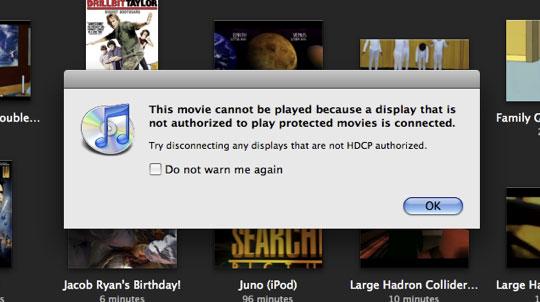






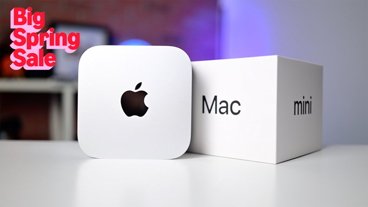
-m.jpg)





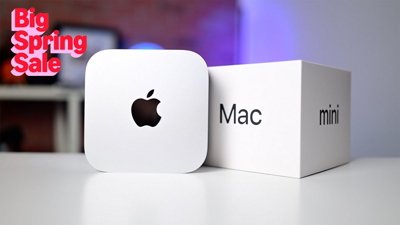
 Christine McKee
Christine McKee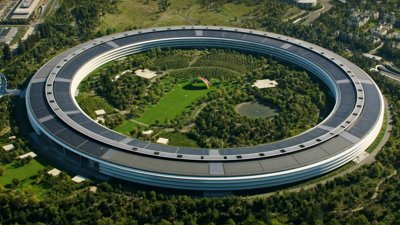
 Wesley Hilliard
Wesley Hilliard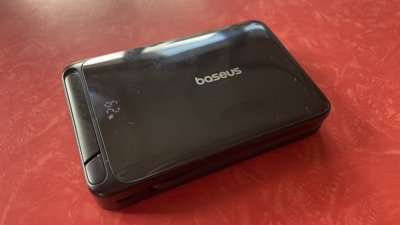
 Thomas Sibilly
Thomas Sibilly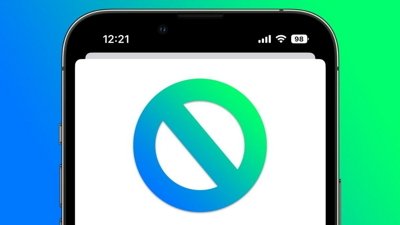
 Marko Zivkovic
Marko Zivkovic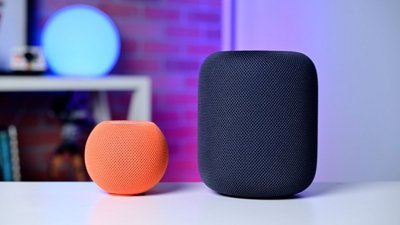
 Andrew O'Hara
Andrew O'Hara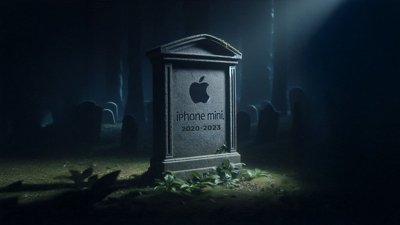
 Amber Neely
Amber Neely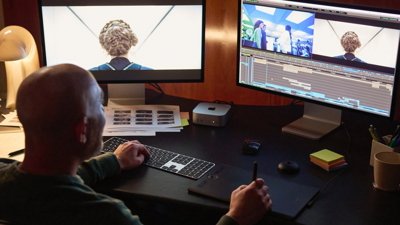
 William Gallagher
William Gallagher
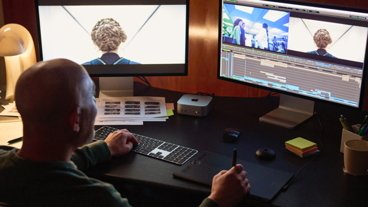

-xl-m.jpg)





246 Comments
Fail!
ah great. here come the headaches!
wow what a BS. such a tough choice , dowload movie for $20 and be able to play it only where apple / movie studios feel that's apropriate or pay nothing, download even better quality and do whatever i feel like doing. tough choice.
better donate same amount to tracker than to throw it away on drm junk.
Apple's new MacBook lines include a form of digital copy protection that will prevent protected media, such as DRM-infused iTunes movies, from playing back on devices that aren't complaint with the new priority protection measures. ...
Boo Hiss!
This is some of the ridiculous bullshit that I can't stand about Windows and MS. This means that i can't play back videos that I buy off of iTunes on my external monitor, if I attach it to my MacBook Pro. That's really going to keep me from pirating my movies now.
EDIT:
Wasn't it a few months ago that Steve was all "I am in favor of removing DRM on songs."?
I wonder how he feels about this.